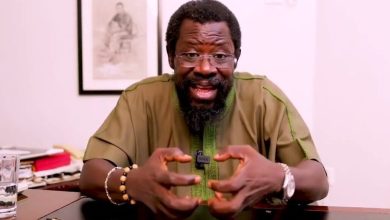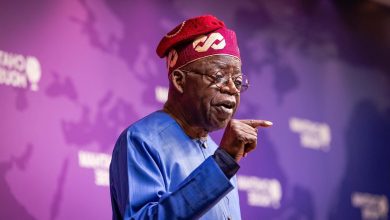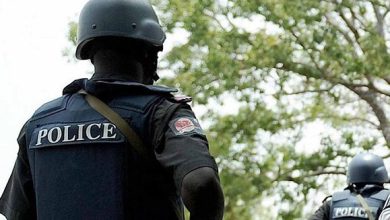Fubara’s Fate Hangs in the Balance as June 12 Approaches
As Democracy Day approaches, pressure mounts on President Tinubu to reinstate suspended Rivers Governor Sim Fubara.
Former President Goodluck Jonathan leads a quiet push, urging a reversal to preserve constitutional order and uphold the spirit of democratic governance.
As Nigeria prepares to celebrate another Democracy Day on June 12, calls are intensifying for President Bola Ahmed Tinubu to reinstate Governor Siminalayi Fubara of Rivers State. Leading the charge behind the scenes is former President Goodluck Jonathan, who is reportedly urging Tinubu to reverse the governor’s suspension in a bid to uphold the spirit of democratic governance.
According to inside sources, Jonathan has held at least one phone conversation with the president, appealing for the restoration of Fubara’s mandate ahead of the symbolic June 12 broadcast. The president is expected to address the nation on that day, continuing a tradition that reflects on the country’s democratic journey.
Governor Fubara was suspended on March 18, 2025, for a period of six months following a prolonged political crisis in Rivers State. Many observers have criticized the move as unconstitutional, pointing out that there is no legal basis in Nigeria’s constitution for a president to suspend an elected state governor, even in a state of emergency.
Critics have drawn attention to Section 305 of the Constitution, which permits the declaration of a state of emergency without necessarily removing the sitting governor. They also cite Section 188, which outlines the impeachment process and places the power of removal squarely in the hands of the State House of Assembly, not the presidency.
The backdrop of the crisis is a fierce political battle between Fubara and his predecessor, Nyesom Wike, now the Minister of the Federal Capital Territory. The rift led to a power struggle within the state, particularly over control of the ruling Peoples Democratic Party (PDP) and influence over appointments to key government positions. Eventually, lawmakers aligned with Wike began impeachment proceedings against Fubara.
In response, Tinubu intervened by suspending not only Fubara but also his deputy and members of the State Assembly. This action, which many viewed as exceeding constitutional boundaries, was followed by the appointment of a sole administrator, Vice Admiral Ibok-Etteh Ibas (retd.), to oversee governance in the state.
Though there were expectations that the president might lift the suspension on May 29 during the second anniversary of his administration, that window passed without any action. Now, hopes are shifting to June 12, a day that commemorates the 1993 election victory of late Chief MKO Abiola and the sacrifices of many Nigerians who fought for democracy.
June 12 remains a symbolic day in Nigeria’s democratic history, honoring the memory of figures like Kudirat Abiola, General Shehu Musa Yar’Adua, Pa Alfred Rewane, and others who paid the ultimate price. Tinubu himself played a notable role in the pro-democracy struggle alongside other prominent activists such as Chief Anthony Enahoro, Chief Ayo Adebanjo, Chief Bola Ige, Chief Gani Fawehinmi, and Dr. Beko Ransome-Kuti.
During his Democracy Day speech last year, Tinubu emphasized his commitment to protecting Nigeria’s democracy. He acknowledged that, while democracy may not be perfect, it remains the most effective form of governance over time. He pledged to uphold citizens’ rights and protect the country’s democratic structure from internal and external threats.
With that vow still fresh in public memory, many Nigerians are watching closely to see whether the president will take action to restore the democratic order in Rivers State. The six-month suspension imposed in March will reach its halfway point by June 18, just six days after this year’s Democracy Day. The question on many lips is whether the president will use the opportunity to end what some have described as an undemocratic takeover of the state.
Since March, Rivers State has been administered by an unelected official, which has drawn strong criticism from civil society groups, constitutional lawyers, and political observers. The move has been seen as a contradiction of the very democratic ideals that Tinubu and others fought for during the dark days of military rule.
As the days count down to June 12, pressure is building from different quarters. Some believe that reinstating Fubara could help douse the political tension in the state and serve as a gesture of reconciliation. Others argue that it would demonstrate President Tinubu’s commitment to democracy not just in words but in action.
Still, the decision rests squarely with the president. Will he use the upcoming Democracy Day to correct what many have called an overreach? Or will the state of emergency continue until the full six-month term elapses in September?
For now, Fubara remains outside the Government House in Port Harcourt, while Vice Admiral Ibas continues to serve as the sole administrator of the state. As citizens await Tinubu’s next move, the coming days could mark a turning point for both Rivers State and the nation’s democratic integrity.
One thing is certain, whatever decision President Tinubu takes on or before June 12 will send a strong message about the kind of democracy Nigeria is building for the future.



